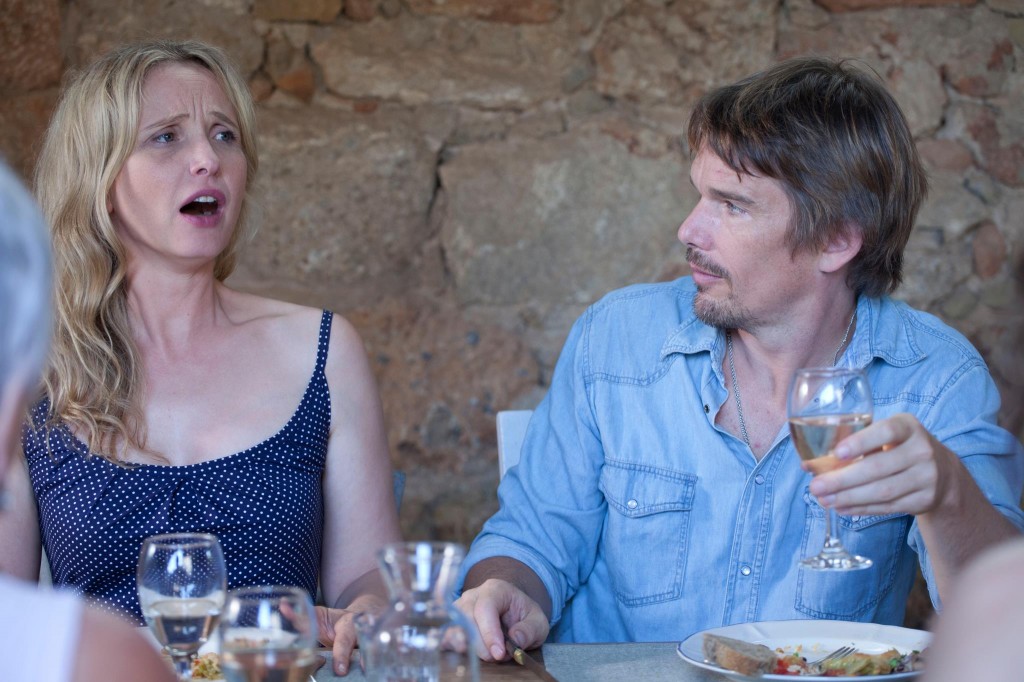
“Before Midnight” is such a small film that it will probably be overlooked by the general public, especially as it competes with “The Hangover Part III.” Still, those who ignore “Midnight” would be missing out, as it accomplishes two rare feats in film history — to be a sequel that successfully advances character development and to close off a trilogy with three fantastic films. In other words, “Midnight” is the polar opposite of the “Hangover” series.
The first “Before” entry, “Before Sunrise,” tells the story of Jesse (Ethan Hawke) and Celine (Julie Delpy) who met on a train and enjoyed a wonderful night of romance in Vienna before parting ways the next day because of life’s obligations. The second film, “Before Sunset,” occurs nine years later in Paris, where Jesse runs into Celine, and they spend the afternoon catching up with their lives.
In “Midnight,” Jesse and Celine are a couple with twin daughters who leave their Paris home to take a vacation in Greece. Both of them are struggling with their own issues — Jesse worries whether he is being a proper father to his son from his first marriage, while Celine questions whether she wants to take a job in the government. These seemingly unrelated problems converge and test Jesse and Celine’s relationship in a very honest and — at times — uncomfortable way.
The tone in “Midnight” is different from the previous films. “Before Sunrise” had a more fantastical romantic tone, which is reflected by the gullibility that many 20-somethings tend to have about love. Much of that tone spilled over into “Before Sunset,” but with “Midnight,” director Richard Linklater shows the difference that a couple would feel about love in their 40s, where there is no longer that sense of youthful romanticism.
That tone is why the sequel works so well. “ Midnight” is not just a carbon copy of the last two entries but a way to further explore the development of the two lead characters in different stages of their lives.
The film consists of long-extended dialogue sequences that feel fresh and honest. While in Greece, Jesse and Celine visit a group of friends and have a family-style meal consisting of about 20 minutes of the group talking about long-term relationships, the idea of true love and sexuality. That scene and another toward the end are the two that most demonstrate how well Linklater can direct actors and write engaging dialogue that at times can be incredibly funny or dramatic.
But keeping in the spirit of the other entries in the series, the majority of the dialogue is between Jesse and Celine. Their sequences take place in long, uninterrupted takes, showcasing the natural chemistry and talented performances of Hawke and Delpy. According to the credits at the end, Linklater shared screenwriting credit with Hawke and Delpy, so it is obvious how much freedom the director gave his lead actors to make them feel more connected with their characters.
The ending is a bit abrupt, and you feel as if five more minutes could have given more closure. But that pales in comparison to everything else in the film, which is absolutely astonishing. Those who have not seen “Before Sunrise” or “Before Sunset” should watch those films — not just to better understand the characters but because they are incredible works. And yet, “Before Midnight” might just be the best of the series, and that says a lot.
Zack Grullon is a staff writer. Email him at [email protected].






















































































































































